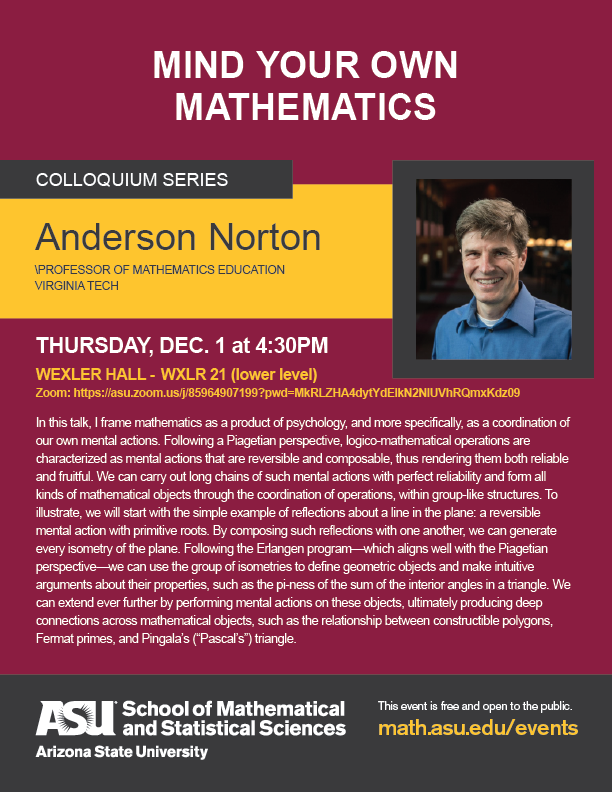In this talk, I frame mathematics as a product of psychology, and more specifically, as a coordination of our own mental actions. Following a Piagetian perspective, logico-mathematical operations are characterized as mental actions that are reversible and composable, thus rendering them both reliable and fruitful. We can carry out long chains of such mental actions with perfect reliability and form all kinds of mathematical objects through the coordination of operations, within group-like structures. To illustrate, we will start with the simple example of reflections about a line in the plane: a reversible mental action with primitive roots. By composing such reflections with one another, we can generate every isometry of the plane. Following the Erlangen program—which aligns well with the Piagetian perspective—we can use the group of isometries to define geometric objects and make intuitive arguments about their properties, such as the pi-ness of the sum of the interior angles in a triangle. We can extend ever further by performing mental actions on these objects, ultimately producing deep connections across mathematical objects, such as the relationship between constructible polygons, Fermat primes, and Pingala’s (“Pascal’s”) triangle.
Colloquium
Anderson Norton
Thursday, Dec. 1
4:30pm
WXLR A206
Virtual via Zoom: https://asu.zoom.us/j/85964907199?pwd=MkRLZHA4dytYdElkN2NlUVhRQmxKdz09
Anderson Norton
Professor of Mathematics Education
Department of Mathematics
Virginia Tech
